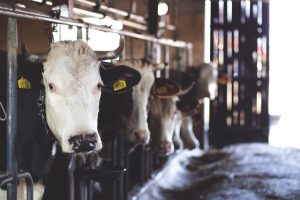“So, why vegan?” may be the most dreaded three words someone could utter to a vegan, aside from “want some bacon?” It’s akin to asking someone why they ascribe to a certain religious perspective or why they oppose corporal punishment. The answer is deeply personal, rooted in opposing cruelty, and – honestly – the better question is “Why aren’t you?”
We have seen such a dramatic shift in the last few years toward veganism and plant-based eating. Most people know what the v-word means now (thankfully, including restaurant servers!) and the amount of heavily-shared digital information about the reasons to make the switch is becoming harder and harder to ignore. Right now is a tender, delicate period in time when the movement is gaining momentum and people everywhere are having to face the reasons why they do what they do.
I saw a friend post on social media the other day about people having no excuse not to face these things, anymore. And I tend to agree with her. Of course I understand the sensation of being inundated with information and choosing to look past things that are hard to see. But, when it comes down to our choices – ones we make multiple times a day – seriously affecting the environment, the animals, and our own health… how much space or time do we give people before we expect them to change their ways?
The hardest part of this tender time is knowing how to respond to the dreaded “why” questions. Sometimes I want to respond with snark, asking “Oh, you eat meat, eggs, and dairy? Why do you make that choice?” or, even better, “You’re not vegan? Is that for unhealthy, unenvironmental, or unethical reasons?” Why should I have to be the one shifting awkwardly, trying to defend my deeply personal position while simultaneously trying to protect your precious, defensive feelings? Why don’t you have to explain yourself?
Once we cross that politeness boundary, however, we become the angry vegan. The militant vegan. The crazy vegan. Walking that delicate line is an exercise in patience, restraint, anger, and a healthy dash of hope that we might somehow plant some seeds within the listener. But, I’m here to say that it is actually okay to pose these kinds of questions, when it is appropriate.
“Oh, you stopped being vegetarian? What inspired you to give it a try before that?”
“Oh, you’re cutting back on red meat? Why is that important to you? What is working for you so far?”
“Oh, you saw Cowspiracy? What were your thoughts on how no one is talking about animal agriculture and climate change?”
These subtle responses place the responsibility of explanation – and hopefully growth and change – back on the person asking the question. It’s a way of telling them that you’re not going to play along while they dig for holes in your reasoning so they can remain complacent and comfortable with their own choices. It’s time we put the onus of explanation on omnivores.
Reposted with permission from The Offbeat Herbivore.

